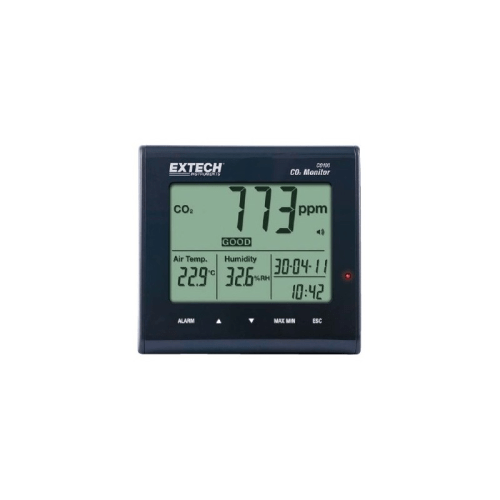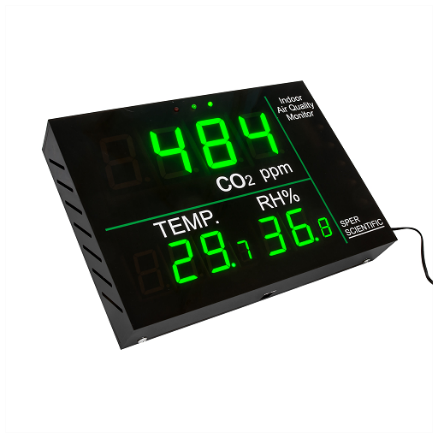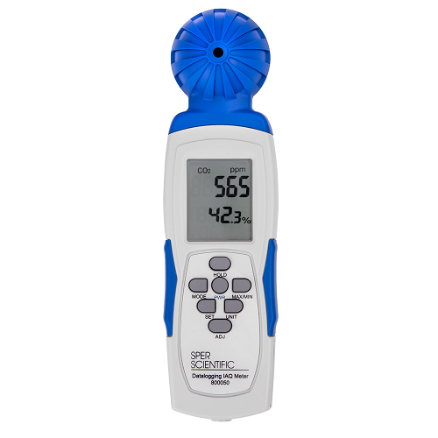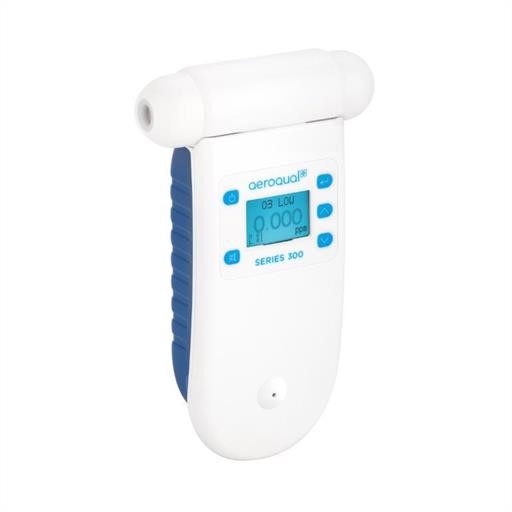The Best Air Quality Monitors That Will Help You Breathe Easy!

Air quality is most often associated with air pollution, although levels of comfort, as affected by ambient temperature and relative humidity, are also factors measured. Both indoor and outdoor environments are important. Governments and homeowners are growing in awareness as to the cost of poor-quality air. For example (when considering poor indoor air quality):
“The CSIRO estimates that the cost of poor indoor air quality in Australia may be as high as $12 billion per year (Brown, 1998). In recent years, comparative risk studies performed by the US EPA and its Science Advisory Board have consistently ranked indoor air pollution among the top five environmental risks to public health ( US EPA, 1993).”
Source: Australian Government – Department of Environment and Energy
Depending on the type, concentration and environment in which poor air quality occurs, it can have long-term or short-term detrimental effects on your health and/or productivity. In the worst case, it can even result in death! The ability to accurately and reliably measure air quality is essential for both public authorities and homeowners engaged in the management of air quality.
What and How Do Air Quality Monitors Measure?
In summary, the major groups of observations captured by air quality sensors are particulate pollution, relative humidity, and poisonous gases - like carbon monoxide or ammonia. Optical particle counters detect particulate pollution by measuring the light scattered by particles. Optical sensors can detect gases such as carbon monoxide and carbon dioxide by measuring the absorption of infrared light. Relative humidity, the amount of water vapour present in air expressed as a percentage of the amount needed for saturation at the same temperature, is measure by psychrometers and hygrometers using a range of methods.
Categories of Air Quality Monitors
Instrument Choice divides meters that measure and/or log air quality data into two broad groups - Indoor Air Quality Monitors and Outdoor Air Quality Monitors. Within each group there are some base unit devices that can be matched with a variety of sensors that you can purchase independently. Each base unit will include a meter reading display for real-time and/or data logged readings.
Indoor Air Quality Monitors:
The most common environmental factors measured by indoor air quality monitors are air temperature, relative humidity and carbon dioxide.
Outdoor Air Quality Monitors
The critical environmental parameters measured by outdoor air quality monitors are:
- Particulate matter levels
- Air temperature and relative humidity
- Formaldehyde
- Methane
- Chlorine
- Carbon Monoxide
- Carbon Dioxide
- Hydrogen
- Hydrogen Sulphide
- Ammonia
- Nitrogen Dioxide
- Ozone
- Perchloroethylene
- Sulphur Dioxide
- Volatile organic compounds (VOCs)
Some portable air quality monitors that measure particulates or gases can be used for both indoor
and outdoor applications.
Popular Examples of Air Quality Monitors
Instrument Choice has a very large range of indoor and outdoor air quality monitors, including
desktop, wall-mounted and portable units. Listed below are some best-selling examples.
Desktop & Wall Mounted - Indoor Air Quality Monitors
The Extech CO100 Desktop Indoor CO2 Air Quality Monitor is a versatile and cost-effective air quality monitor used to detect carbon dioxide (CO2), air temperature and humidity. This maintenance-free unit covers broad measurement ranges, offers an alarm function and automatic baseline or manual calibration against fresh air. This model is popular with schools, facilities managers (offices, factories, hotels, hospitals), agribusiness (e.g. glasshouses), and with OH&S managers (e.g. transportation links – road, rail etc.).
 The IC-800051 Indoor Wall-Mounted Air Quality Monitor continuously measures indoor air quality displaying readings that are visible across a large room. The device also features automatic baseline calibration (ABC), it’s maintenance free and designed for long-term accuracy, stability and reliability. The unit is ideal for applications in crowded public spaces with potentially high levels of CO2 (carbon dioxide), such as offices, factories, classrooms, hospitals and hotels.Monitored data includes air temperature, relative humidity (RH) and carbon dioxide (CO2).
The IC-800051 Indoor Wall-Mounted Air Quality Monitor continuously measures indoor air quality displaying readings that are visible across a large room. The device also features automatic baseline calibration (ABC), it’s maintenance free and designed for long-term accuracy, stability and reliability. The unit is ideal for applications in crowded public spaces with potentially high levels of CO2 (carbon dioxide), such as offices, factories, classrooms, hospitals and hotels.Monitored data includes air temperature, relative humidity (RH) and carbon dioxide (CO2).

Handheld Units - Indoor Air Quality Monitors
For an example of a portable, accurate and potentially integrated air quality monitor theIC-800050 Datalogging Indoor Air Quality Monitor
is worthy of your attention.It can capture, measure and store huge amounts of data for air temperature, RH, CO2, Dew Point and Wet Bulb. Results can be downloaded using a USB cable and software (included).

Handheld Units – Indoor/Outdoor Air Quality Monitors (Poisonous Gases)
The Aeroqual Series 300 Lithium Portable (Indoor & Outdoor) Air Quality Monitor - IC-HH S300L – is a portable air quality monitor that offers a cost-effective solution should you need to accurately measure multiple target gases at different concentrations across indoor and outdoor applications. You can fit multiple sensor heads to suit your requirements.

To learn more about the types of air quality monitors available, how they work and for the best air quality monitors for different applications check out the following links:
If you have any questions at all regarding Instrument Choice’s products, if you can’t find the air quality monitor you’re looking for, or you need advice with an application, setting up your equipment, or designing an experiment contact an Instrument Choice scientist.
Also interesting
The blanket term ‘environmental meters’ covers an extensive array of meters that measure an even greater range of environmental parameters. In this article, the Instrument Choice Scientists demonstrate how you can measure anything, and measure anything from A to Z with our vast assortment of environmental meters!

The moisture content within hay, straw, grains, pulses, and oilseeds is an essential consideration for growers, buyers, and processors in the agricultural industry. Moisture content and quality are inextricably linked. High moisture, especially when paired with high temperatures, increases the risk of mould, mycotoxins, and insect infestation.
Instrument Choice Scientists have compiled a list of the five top-rated portable grain and hay moisture meters, highlighting their key specifications and differentiating features so that you can find the best meter for your needs.

